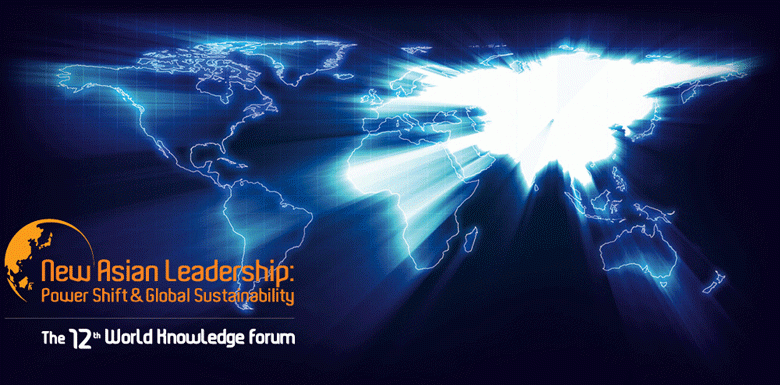World Knowledge Forum Seoul Korea

Joseph Kessels was speaker at the World Knowledge Forum in Seoul Korea (11-13 October 2011).
In the session on The Knowledge Revolution he addressed the central concept of Knowledge Productivity.
He discussed the implications of knowledge produtivity with:
Mr. Mahmoud Mohieldin, Managing Director, World Bank Group
Mr. Mario Pezzini, OECD Knowledge Management Director
Mr. Hur, Kyung-Wook, Korean ambassador to OECD, who replaced
Mr. Choi Joong-Kyung, Minister of the Knowledge Economy of Korea
Mr. Kang, Suk-Jean, chairman of the Korean Management Association moderated the session
His central statement developed as follows:
Knowledge is becoming the most important asset of companies, institutions and countries. The capability of making knowledge productive will be the critical element in the process of value creation. Financial capital, natural resources and labor will remain important assets, however, their capacity of transforming knowledge into competencies for gradual improvement and radical innovation will become the essential fuel for the growth engine of value creation in companies, institutions and countries.
As value creation is one of the prime objectives and responsibilities of leadership in business and governments it is extremely important not only to understand the process of knowledge productivity but also how to put it into day-to-day practice. High levels of education, large numbers of graduates and the availability of financial means are just not sufficient prerequisites. Knowledge productivity as the growth engine for value creation requires an attractive learning climate that encourages boundary less thinking, and an imaginative and entrepreneurial spirit, not only at the top but at all levels in companies, institutions and countries. For this reason, we will discuss in this session the implications of knowledge productivity and value creation and what this means for leadership. For upgrading knowledge productivity in our organizations to the highest-level just conventional knowledge management is insufficient to maximize value creation for achieving our vision and goals. How can we build an organizational culture that nurtures knowledge productivity and what are the major roles of leadership in this challenging enterprise?
For further infromation on the WKF2011 click here
You can download the brochure of the WKF2011
